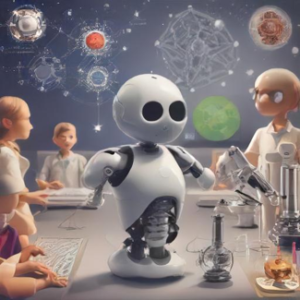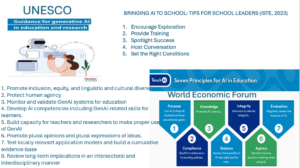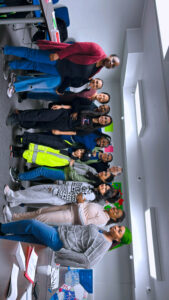Reflecting on the topic of today’s debate, two things came to mind:
”Education is the most powerful weapon that we can use to change the world’. – Nelson Mandela
“If we teach today as we taught yesterday, we rob our children of tomorrow.” – John Dewey
The use of technology in education began in the 19th century and has since revolutionized teaching and learning in many ways. Though these revolutions have been slow, the current era of 4IR has spurred developments in the use of AI technologies, which are driving the new and future world of work. These technologies include, but are not limited to: humanoid robots, virtual/augmented/mixed reality, cloud computing, web-based chatbots, and intelligent tutoring systems. As an educator and researcher, I have used VR and AR to teach abstract physics concepts, which has enhanced my students scientific practice. They were able to understand some of the inquiry skills required for learning science. One thing I also realized is that the VR application used helped the students engage more deeply with the lesson content, interact with models in the virtual space, and enhance their ability to collaborate with other students in the virtual class. With my experience, I can say that an AI-powered VR learning environment can help optimize students learning experiences. Studies have also demonstrated how AI tools can be used to generate tailored advice for individual students, helping them improve based on their past assessments and preferred learning styles. Another significant part of AI is the use of machine learning algorithms that identify trends and patterns in large datasets and make sound predictions about learning behaviours and future outcomes. Evidence has also demonstrated how engaging students in AI related activities and projects has improved their acquisition of 21st-century and 4IR skills like digital literacy, complex problem solving, computational thinking, collaboration, creativity, and so on.
Despite the positive inclination around the use of AI, we have also seen people raise concerns on bias, safety, and privacy around the use of AI. I think these issues have always existed since the first industrial revolution, and the public has always been finding ways of managing them. Nevertheless, several policies, frameworks, and guidelines have been developed to aid the effective use of AI tools in education ( see below).
How can we demystify issues around the AI in Education? The World Education Forum had a debate on this issue (see below).
Technology is continually changing, and we have to adapt to the change in order to become relevant and skilled in the present era.

“The illiterate of the 21st century will not be those who cannot read and write, but those who cannot learn, unlearn, and relearn.” – Alvin Toffler



